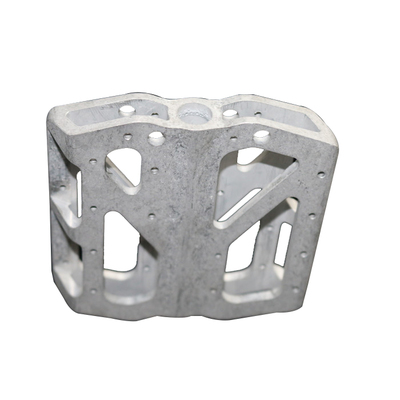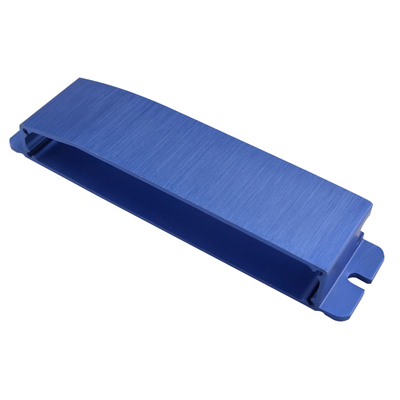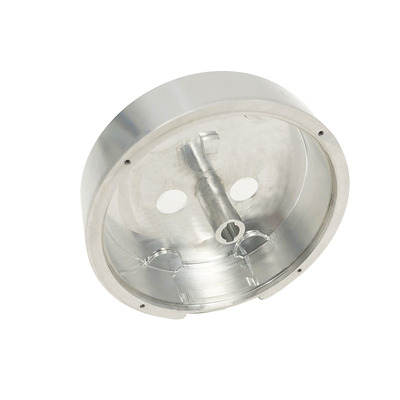Properties of Grade 5 Titanium
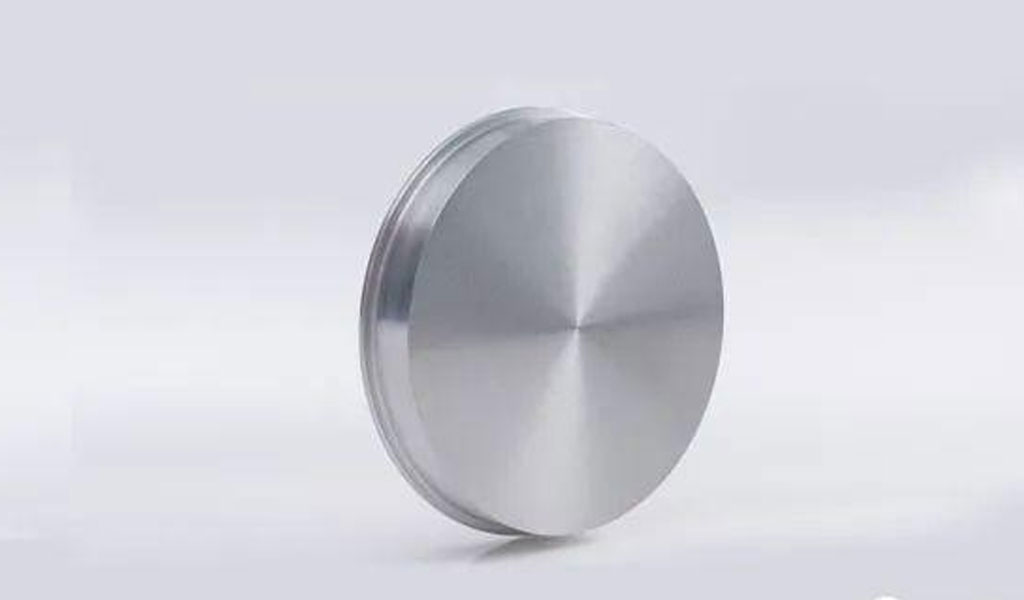
Grade 5 titanium, also known as Ti-6Al-4V, is one of the most widely used titanium alloys in various industrial applications. This alloy is notable for its excellent combination of strength, corrosion resistance, and lightweight characteristics, making it suitable for demanding environments such as aerospace, medical, and marine applications. This article explores the properties of Grade 5 titanium, including its mechanical properties, corrosion resistance, thermal properties, and applications.
Chemical Composition
Grade 5 titanium consists primarily of titanium, with a specific composition that includes:
- Titanium (Ti): 90.0% minimum
- Aluminum (Al): 6.0% to 7.0%
- Vanadium (V): 3.5% to 4.5%
- Iron (Fe): 0.25% maximum
- Oxygen (O): 0.20% maximum
- Nitrogen (N): 0.05% maximum
- Hydrogen (H): 0.015% maximum
This unique chemical composition contributes significantly to its mechanical properties, particularly its high strength-to-weight ratio.
Mechanical Properties
Tensile Strength
The tensile strength of Grade 5 titanium is approximately 895 MPa (130,000 psi) in its annealed condition. This high tensile strength makes it an ideal material for applications requiring resistance to deformation under load.
Yield Strength
The yield strength, which is the maximum stress that can be applied without permanent deformation, typically ranges from 828 MPa (120,000 psi) to 862 MPa (125,000 psi). This property is crucial in ensuring the structural integrity of components made from this alloy under various loading conditions.
Elongation
Elongation, a measure of ductility, for Grade 5 titanium is about 14% to 18%. This indicates that the alloy can undergo significant plastic deformation before fracturing, which is beneficial in forming processes.
Hardness
The hardness of Grade 5 titanium is approximately 35 HRC (Rockwell Hardness Scale). This hardness level enables the alloy to maintain its structural integrity under abrasive conditions.
Fatigue Strength
The fatigue strength of Grade 5 titanium is notable, typically around 552 MPa (80,000 psi) at 10^7 cycles. This property is essential in applications involving cyclic loading, as it indicates the material's ability to withstand repeated stress without failure.
Corrosion Resistance
Grade 5 titanium exhibits exceptional resistance to corrosion, particularly in chloride environments. Its corrosion resistance is attributed to the formation of a passive oxide layer on the surface, which protects the underlying metal from various corrosive agents. It is particularly resistant to:
- Oxidation: It can withstand elevated temperatures without significant degradation.
- Acidic environments: It demonstrates resistance to various acids, including sulfuric and hydrochloric acid, making it suitable for chemical processing applications.
- Saltwater: Its resistance to pitting and crevice corrosion makes it ideal for marine applications.
Thermal Properties
Thermal Conductivity
Grade 5 titanium has a low thermal conductivity, approximately 6.7 W/m·K. This property is beneficial in applications where thermal insulation is necessary.
Thermal Expansion
The coefficient of thermal expansion for Grade 5 titanium is approximately 8.6 x 10^-6/K. This low thermal expansion coefficient makes it suitable for applications requiring dimensional stability under temperature variations.
Melting Point
The melting point of Grade 5 titanium is approximately 1,660 °C (3,020 °F). This high melting point allows for the alloy to maintain its mechanical properties at elevated temperatures, making it suitable for high-temperature applications.
Fabrication Techniques
Machining
Grade 5 titanium can be machined using conventional machining techniques, although specialized tools and techniques are often required due to its toughness and tendency to work harden. Common machining methods include:
- Turning: Utilized for cylindrical parts.
- Milling: Suitable for complex shapes and features.
- Drilling: Requires specialized drill bits to prevent work hardening.
Welding
Welding Grade 5 titanium requires careful control of heat input to avoid degradation of its mechanical properties. Common welding methods include:
- TIG (Tungsten Inert Gas) welding: Preferred for its ability to provide high-quality welds.
- MIG (Metal Inert Gas) welding: Less commonly used but applicable in certain scenarios.
Forming
Grade 5 titanium can be formed using various techniques, including:
- Hot working: Typically performed at temperatures between 800 °C and 1,000 °C.
- Cold working: Applicable for certain applications, although it requires careful handling to prevent cracking.
Applications
Grade 5 titanium's unique combination of properties makes it suitable for a wide range of applications, including:
Aerospace
In the aerospace industry, Grade 5 titanium is extensively used in:
- Aircraft structures
- Engine components
- Fasteners and landing gear
- Hydraulic systems
Medical
Grade 5 titanium is a preferred material in medical applications due to its biocompatibility and corrosion resistance. Applications include:
- Surgical implants
- Prosthetic devices
- Dental implants
Marine
The corrosion resistance of Grade 5 titanium makes it ideal for marine applications such as:
- Ship components
- Submarine structures
- Offshore oil and gas applications
Automotive
In the automotive industry, Grade 5 titanium is used in:
- Exhaust systems
- Engine components
- High-performance parts
Other Industries
Grade 5 titanium is also utilized in various other sectors, including:
- Chemical processing
- Energy generation
- Defense
Conclusion
Grade 5 titanium, with its superior mechanical properties, excellent corrosion resistance, and lightweight characteristics, continues to be a material of choice across numerous industries. Its versatility and reliability ensure its ongoing importance in applications where performance is paramount. As research and technology advance, the potential applications and enhancements for Grade 5 titanium are likely to expand further, solidifying its role as a critical material in modern engineering.
Reprint Statement: If there are no special instructions, all articles on this site are original. Please indicate the source for reprinting:https://www.cncmachiningptj.com/,thanks!
 3, 4 and 5-axis precision CNC machining services for aluminum machining, beryllium, carbon steel, magnesium, titanium machining, Inconel, platinum, superalloy, acetal, polycarbonate, fiberglass, graphite and wood. Capable of machining parts up to 98 in. turning dia. and +/-0.001 in. straightness tolerance. Processes include milling, turning, drilling, boring, threading, tapping, forming, knurling, counterboring, countersinking, reaming and laser cutting. Secondary services such as assembly, centerless grinding, heat treating, plating and welding. Prototype and low to high volume production offered with maximum 50,000 units. Suitable for fluid power, pneumatics, hydraulics and valve applications. Serves the aerospace, aircraft, military, medical and defense industries.PTJ will strategize with you to provide the most cost-effective services to help you reach your target,Welcome to Contact us ( sales@pintejin.com ) directly for your new project.
3, 4 and 5-axis precision CNC machining services for aluminum machining, beryllium, carbon steel, magnesium, titanium machining, Inconel, platinum, superalloy, acetal, polycarbonate, fiberglass, graphite and wood. Capable of machining parts up to 98 in. turning dia. and +/-0.001 in. straightness tolerance. Processes include milling, turning, drilling, boring, threading, tapping, forming, knurling, counterboring, countersinking, reaming and laser cutting. Secondary services such as assembly, centerless grinding, heat treating, plating and welding. Prototype and low to high volume production offered with maximum 50,000 units. Suitable for fluid power, pneumatics, hydraulics and valve applications. Serves the aerospace, aircraft, military, medical and defense industries.PTJ will strategize with you to provide the most cost-effective services to help you reach your target,Welcome to Contact us ( sales@pintejin.com ) directly for your new project.
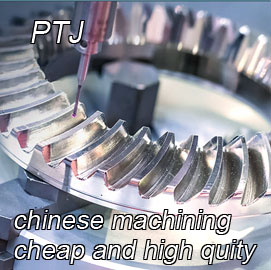
- 5 Axis Machining
- Cnc Milling
- Cnc Turning
- Machining Industries
- Machining Process
- Surface Treatment
- Metal Machining
- Plastic Machining
- Powder Metallurgy Mold
- Die Casting
- Parts Gallery
- Auto Metal Parts
- Machinery Parts
- LED Heatsink
- Building Parts
- Mobile Parts
- Medical Parts
- Electronic Parts
- Tailored Machining
- Bicycle Parts
- Aluminum Machining
- Titanium Machining
- Stainless Steel Machining
- Copper Machining
- Brass Machining
- Super Alloy Machining
- Peek Machining
- UHMW Machining
- Unilate Machining
- PA6 Machining
- PPS Machining
- Teflon Machining
- Inconel Machining
- Tool Steel Machining
- More Material

